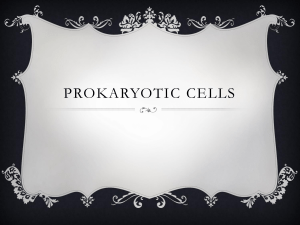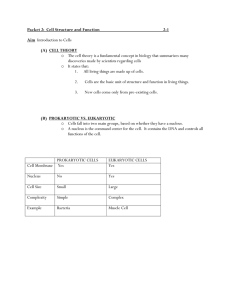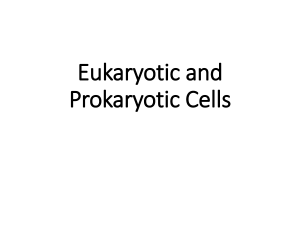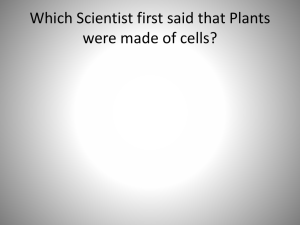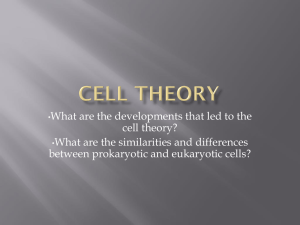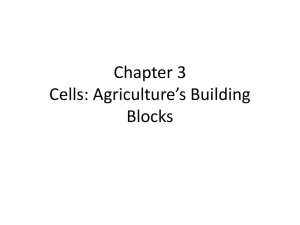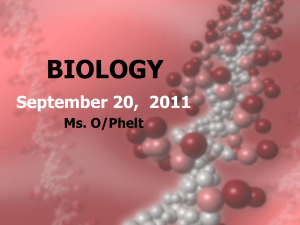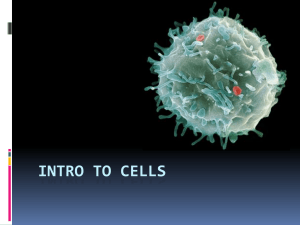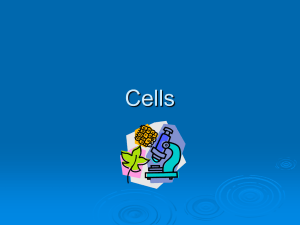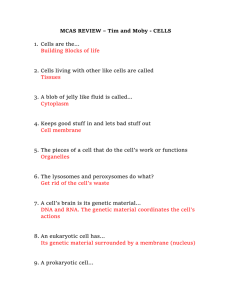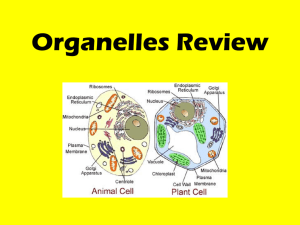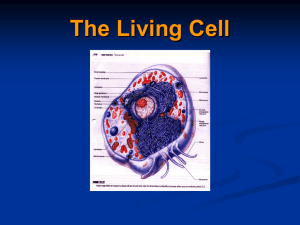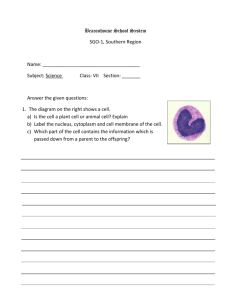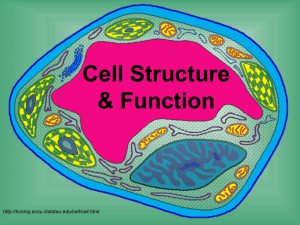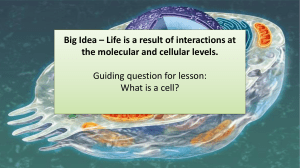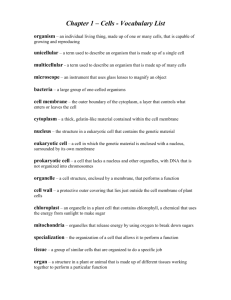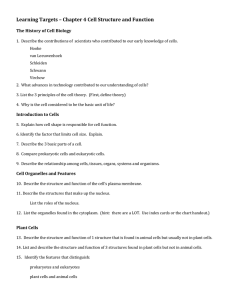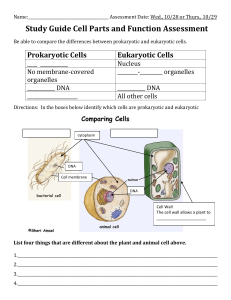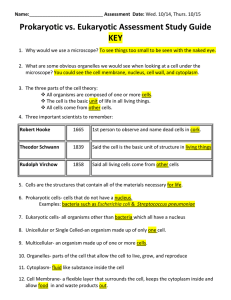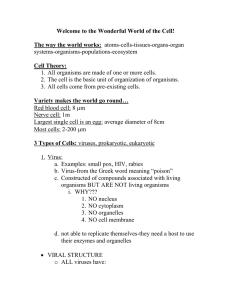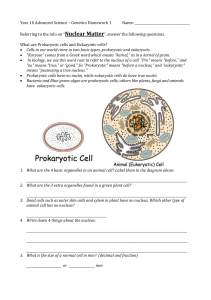What is the cell theory?
advertisement
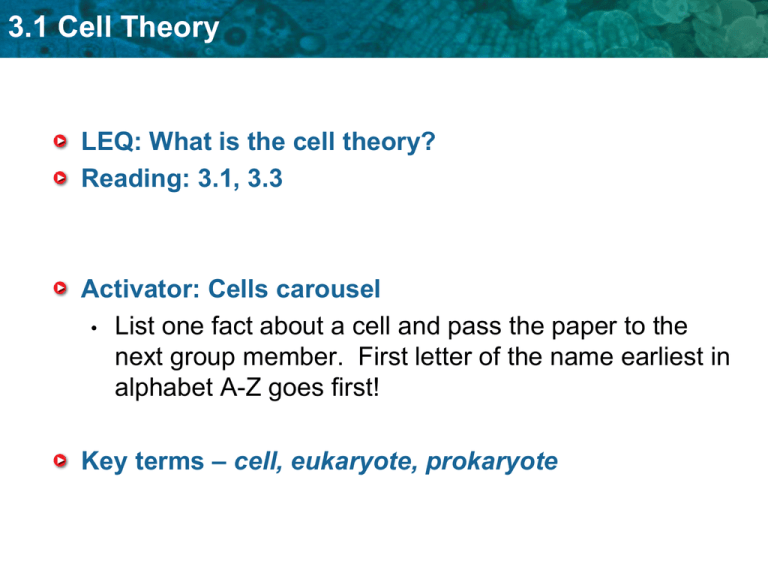
3.1 Cell Theory LEQ: How do enzymes help cells perform chemical reactions? LEQ: What is the cell theory? Reading: 3.1, 3.3 Activator: Cells carousel • List one fact about a cell and pass the paper to the next group member. First letter of the name earliest in alphabet A-Z goes first! Key terms – cell, eukaryote, prokaryote 3.1 Cell Theory UNIT CONCEPT Cells are chemical systems with emergent properties. 3.1 Cell Theory The Cell theory has three principles. – 1) All organisms are made of at least one cell. – 2) All existing cells are produced by other living cells. – 3) The cell is the most basic unit of life. Nothing simpler is considered a living system 3.1 Cell Theory All cells have a common origin in the history of life. • All cells share certain characteristics. – *most are microscopic. – enclosed by a membrane. – filled with cytoplasm. cell membrane – DNA – Ribosomes: Molecular organelle that makes proteins cytoplasm Bacterium (colored SEM; magnification 8800x) 3.1 Cell Theory • Cells can be categorized based on the presence of certain structures. • Eukaryotic cells have a nucleus: nucleus – (Greek): – karuon – “kernel” – eu – “true” organelles cell membrane 3.1 Cell Theory Cells can be categorized based on the presence of certain structures: • prokaryotic cell types do not have a true nucleus. nucleus – pro – “before” • Obsolete term? organelles cell membrane 3.1 Cell Theory Questions: • How do prokaryotic and eukaryotic cells differ? 3.1 Cell Theory Answers: • Eukaryotic cells have a nucleus and membrane-bound organelles; prokaryotic cells generally do not.
